Graham Reid | | 11 min read
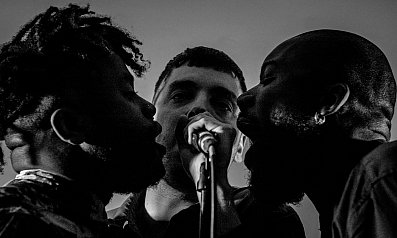
Young Fathers are an Ediburgh-based band whose music ranges across a number of styles from funk and pop to hip-hop, raggae and more.
The trio of Alloysious Massaquoi, Kayus Bankole and Graham “G” Hastings talk us through Heavy Heavy, their third acclaimed album.
.
How much did the pandemic shape the record?
G: "I think the timing for us wasn't that major of a disruption because we had come off the last album and toured it we were planning on recording anyway. So it kind of like, it stopped us recording a couple of times for a few weeks.
But apart from that, it was like strangely, I think it's affected the album in the opposite way, where it's almost like the communal aspect of the album is kind of probably more communal maybe than our previous albums in a certain way or the feel of it. I don't know if that was just like a subconscious, wishful thinking kind of thing. And I think in that way it, it affected us maybe, but I don't know.
It's hard to determine how much consciously, you know, affected us or not but I would say it definitely feels like that and it's ended up being more communal than we expected, I'd say."
These are tumultuous times with not only the pandemic, but the Black Lives Matter movement against police violence in the US, the war in Ukraine, the protests against a despotic regime in Iran – did these issues have an effect on “Heavy Heavy”?
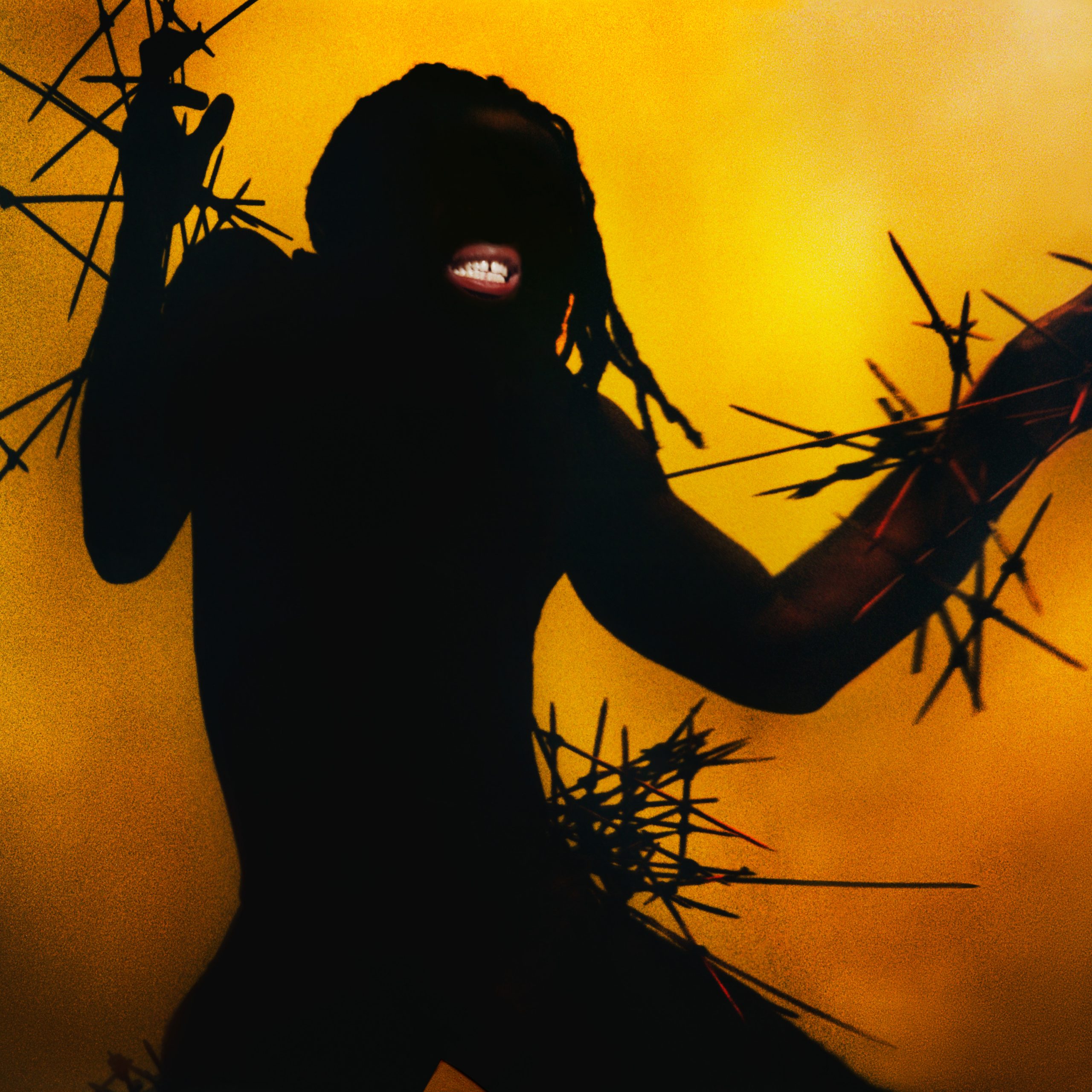 Kayus: "What I'm getting from the question that you're asking is, is like on the surface, you have evil people making bad decisions that affects every single one of us, and we can't control the effect that it has.
Kayus: "What I'm getting from the question that you're asking is, is like on the surface, you have evil people making bad decisions that affects every single one of us, and we can't control the effect that it has.
There's a huge degree of separation from us to those people making those decisions. And so all we can do is try to be in touch with our human experiences because we're human beings and we have these emotions that manifest as a consequence of it.
As a band, we don't actually sit down and map out all the problems of the world because there's too many and we don't actually even talk about it. We barely even talk when it comes into the recording process. So what we're doing is just expelling our human emotions and just living with whatever we are living with at the time.
We can't speak for anybody. We only really speak for ourselves."
I understand that “Heavy Heavy” is a step back to the roots concerning the spontaneity of workflow and the production?
G: "I think spontaneity has always been the strongest arm of the band. It's always been there. It's just the different degrees of how you kind nurture it or yeah, and control it or not hone in on it. You know, you just have to make sure that it's able to capture while you're in that moment and get it as soon as possible.
And so, yeah, with this album it's definitely, you know, unlike previous albums where, you know, bit of music might be here or someone might come in with a melody or a hook or whatever. Like, this one was kind of like the three of us together first. And then by the end of the day, you have the shapes of a song. It feels like it's been harnessing this spontaneity even more because of just recognizing that even live or in the studio, that is kind of one of our ace cards, you know what I mean? So..."
Alloysious: "Also the simplicity, you know, also simplicity. Just, you know, getting to the essence of what it is that comes, getting to the essence of what the track is or what the song is or what we're trying to do. But all the time it's to do with the feeling. You know, we all connect with the feeling of it, and then we express all the stuff on top of it. So I think with spontaneity,
I think that action in itself is a simple thing. But when you sort of hone in so much onto it, it makes something a lot bigger. You know, there's a lot of surprises that comes with that. And everybody has their own ideas of what they want personally inside. And then they just layer and layer and layer. And then you come up with something that's, you know, that's incredible."
Is there a recipe on how you work on songs?
G: "You know, obviously everybody writes their own bits and has their own ideas, like we're saying, but we don't really sit and discuss or talk about that side of things because the doing of it is much more important than the kind of... like what Ally was saying about the simplicity.
It's like there's so much like ideas you can have in your head that a lot of the time, you know, you think a good idea is written on paper or in black and white and that form, but actually actioning them, it doesn't really come with that. And so for us, it's always working the reverse way, because we've grown up together, because we've been together 20 years, we have something that, you know, we're all confident in front of each other. We're all able to sing and have ideas in front of each other, there's no shyness.
There's no like, Oh, I don't know if this is all right kind of thing. It's like everybody's shouting, you know, over each other, even at some times. And that's kind of, again, I suppose the downtime makes you reflect on the kind of strong suits in the band or what it is that makes it when it's in its best essence.
What is it? What are you harnessing? And for us, it's that thing."
Is there something like a topic, a subject that all the songs on “Heavy Heavy” have in common?
 G: "Yeah, there wasn't any mad concepts. We've never really been a kind of concept band. It's better to come up with it after, you know, let it all spell out in this big kind of mess and then something will appear in front of you from it rather than..."
G: "Yeah, there wasn't any mad concepts. We've never really been a kind of concept band. It's better to come up with it after, you know, let it all spell out in this big kind of mess and then something will appear in front of you from it rather than..."
Alloysious: "...a thread, going right through. And then we can sort of be like pinpoint, That's what it is. And sometimes you know as well, when you're writing the lyrics and you're like grim and like Kayus was saying, you expel a bunch of stuff and you haven't quite worked out what it is that you're trying to say, but you know you're saying something because you're connecting with the feeling, with the feeling of the song, you know.
And then once you sort of whittle it down and you, you arrange stuff, more things start becoming, appearing a bit more clearer, clearer and clearer and clearer. You go, Ah, and then you actually reflect and say, Oh, shit, you know, there's a surprise that's what I'm talking about.
That's what I'm, I was feeling. Or those are just a great bunch of words that you put together.
Those are a great bunch of words that you put together that inspires people to project a whole bunch of stuff that inspires yourself to project something, you know. Because it's saying something without saying something. So then there's a leeway for people to believe or question or ask themselves all this stuff. And that's the beauty of music or art in itself, you know."
What's the meaning of the album title “Heavy Heavy”? Is it connected to the feelings you were just describing when you recorded the tracks?
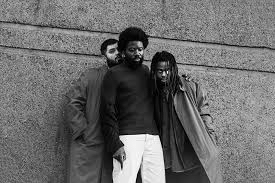 Kayus: "For sure, that's why I would say like intensity as well. And having a relationship with sound or like having a relationship with like anybody really like what Ally was saying, when you're in a heated moment where the music moves you or you are in a heated moment of conversation with a counterpart, like you're saying so many things that you are not aware of, that you're saying you're just reacting.
Kayus: "For sure, that's why I would say like intensity as well. And having a relationship with sound or like having a relationship with like anybody really like what Ally was saying, when you're in a heated moment where the music moves you or you are in a heated moment of conversation with a counterpart, like you're saying so many things that you are not aware of, that you're saying you're just reacting.
And that's like how the best way I can kind of describe the mood is like it's a reactive thing, reactive to like how you're feeling at the time and then you're working it through like this back and forth relationship that you're having with the sound, having with yourself, having with your lyrics, having with like, like all three of us together. It's like be not afraid to question emotions and go back at it.
This is the first time I've actually gone back and looked at our words again and dissecting it, like reconstructing it, like frankensteining it together to, to take it to another place, to another, you know, surprise or whatever you want to call it. But yeah, so I would, I would definitely say there's a level of intensity and that's what I would use to describe the mood as well."
Alloysious: "I mean, for me, I think for me it's even simpler. I agree with what the guys are saying. But for me it's even simpler, because I think as an artist you want to create something undeniable. And for me, this record is undeniable. It's undeniably steeped in human condition and all the complexities.
So it's on that level where it acknowledges everything the guys have said. Because if it's humanity, steeped in humanity that and all the different facets and all the things that we talk about and everybody talks about and it's just that and that's given this heaviness, you know, right through, that's what we're saying 'Heavy Heavy'.
But also 'Heavy Heavy", you know, because if you say it twice, it's playful. It's playful as well. So there's a playful aspect of that, you know, and there's a little bit of joy that comes from that as well, within humanity and the human condition and stuff like that. So I think it's just on that tip, undeniably steeped in humanity.
That's what for me, that's what the record is."
You're influenced by a wide range of different genres like hip-hop, soul, funk, reggae, Indie, krautrock, traditional music from Australia to Nigeria to create something unique and very much your own. Are you yourself aware of how your influences get into your music?
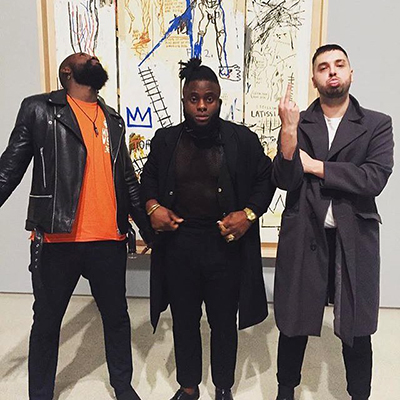 Alloysious: "We don't go in and say like, Oh, we're going to take this and this and mix it together. And this, Poof! and this is what we'll get. It never works that way. I think, you know, we all like different stuff, but also we all want to make something that we haven't heard.
Alloysious: "We don't go in and say like, Oh, we're going to take this and this and mix it together. And this, Poof! and this is what we'll get. It never works that way. I think, you know, we all like different stuff, but also we all want to make something that we haven't heard.
So, you know, when we pull it back, I think a lot of it is like soul and reggae stuff. And then when you go to school, you're listening to a whole bunch of different music, like dance music and whatnot and all that stuff, like its splinters.
And it's like you're collecting stuff over the years as like a magpie, you're collecting all these ideas and all this stuff, experiences. And then when we come in, we know that we want to make something that we enjoy that we haven't heard.
So this is how it ends up coming out like that. Through all the experiences and all the music that you've absorbed over the years. So it's never, you know, a pinpoint thing. And I think that just makes it more exciting. That's what we sort of aim for, so you can get that surprise.
Because it's like, you know, if we're not going to go, Oh, we're going to make this this Rap, let's do a Rap song, it's going to be boom, boom. For us, I think there needs to be an awkwardness. There needs to be something that's a bit awkward, that's a bit off kilter that just keeps you more engaged and goes like, Oh, I didn't expect that."
Would you yourself consider your music as pop?
G: "Obviously our musical tastes were not, we didn't even listen to the same music. There is a stream of music that we probably all agree on, and that we all like. And actually most of that is, you know, a great Pop song, you know? For us, this kind of Pop format just works for us.
There's also like the aspects of certain things like certain Folk music or certain strands of Folk music from around the world or indigenous music or those things that humans have probably grabbed onto for thousands of years that kind of musically make them feel a certain way.
So like, you're talking about the similarities between Celtic music or like Aboriginal music or music from the Deep South or Gospel or South American Latin and, you know, Cumbia and all these different forms of music and you mix that with like Sly and the Family Stone, you know what I mean?
And you kind of have this mesh of all things, but also you observe that fucking Pop music as a kind of construct and all that. All those things that soothed people for whatever and all the best bits.
When pop is magic and it's fucking amazing and it's not all the time, you know, it's very few and far between that pop has these really great moments in a song or even in a performance or in a film or whatever. Those kind of things, those bare essentials that humans kind of look for are like a drug almost. They're there in some shape or form. And for us it's kind of like an intense obsession to get to that fucking real source, the real root of what is."
You will start a tour by the middle of February, how would you describe your live shows for someone who's never been to one?
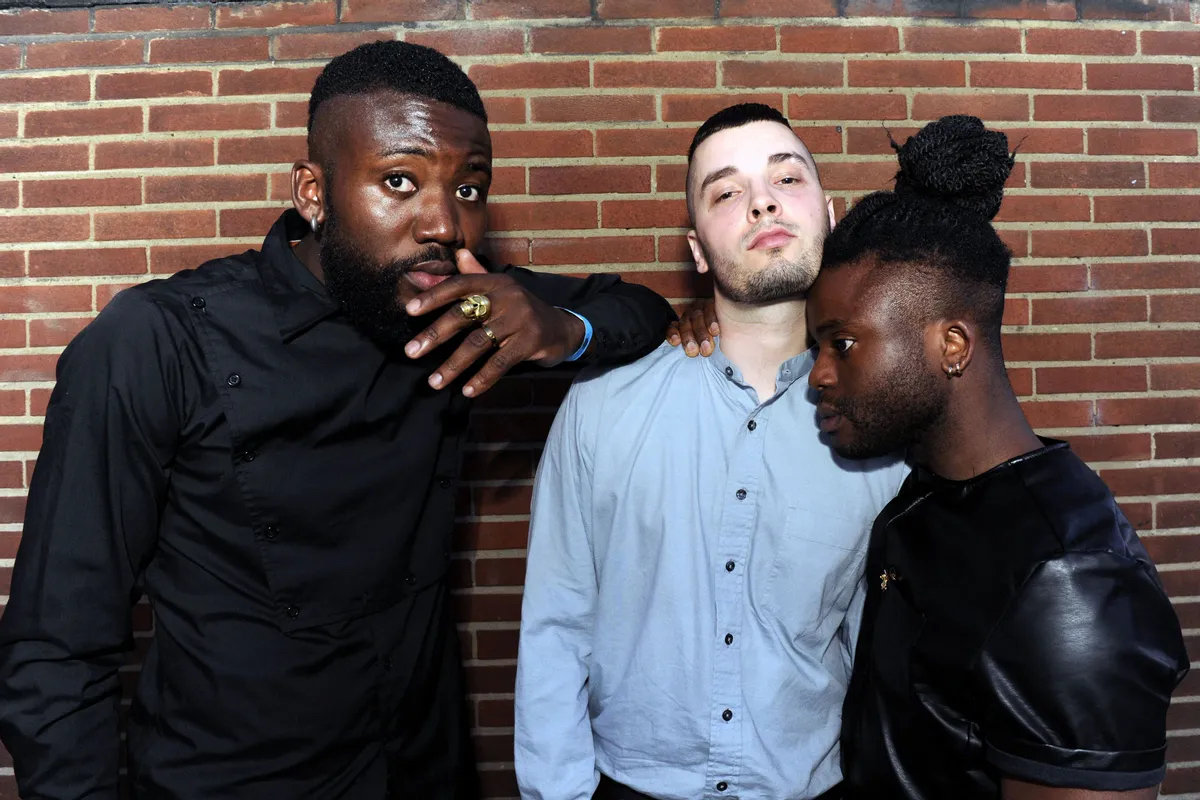 Alloysious: "If we can get a photograph of us performing live, a picture capturing us performing live, that's the greatest PR that we could ever have because people can understand us and understand what it is that we do.
Alloysious: "If we can get a photograph of us performing live, a picture capturing us performing live, that's the greatest PR that we could ever have because people can understand us and understand what it is that we do.
In that sort of action shot, they go, Ah, that's who they are, that's what they do. Probably our strongest thing is when we do our live shows, because you get to the essence, you see the spontaneity, you're there, you're in the moment. People say it's raw, it's unbridled, and it's it's masculine, it's sexy, it's whatever the adjectives that you use.
But you're getting a sense of something that, you know, that's living, that's breathing. It's there and everyone can relate to that."
.
This interviewed was provided and is used with permission.
.

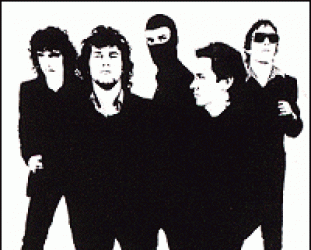

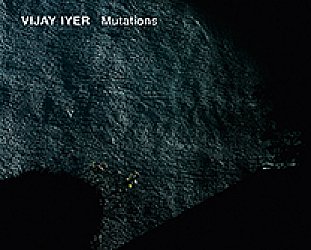
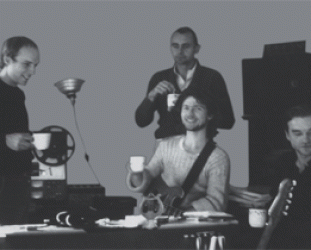
Stephen Neate - Feb 14, 2023
I saw Young Fathers at Cassette 9, Jan 11, 2016. They'd just won the Mercury Prize, it was the day Bowie died, the place was half empty despite the $15 door charge. It was muggy. They came on and put on an entrancing performance that was half Underworld, half Residents and half Kabuki. It was big and threatening and it welded them into my DNA.
Savepost a comment